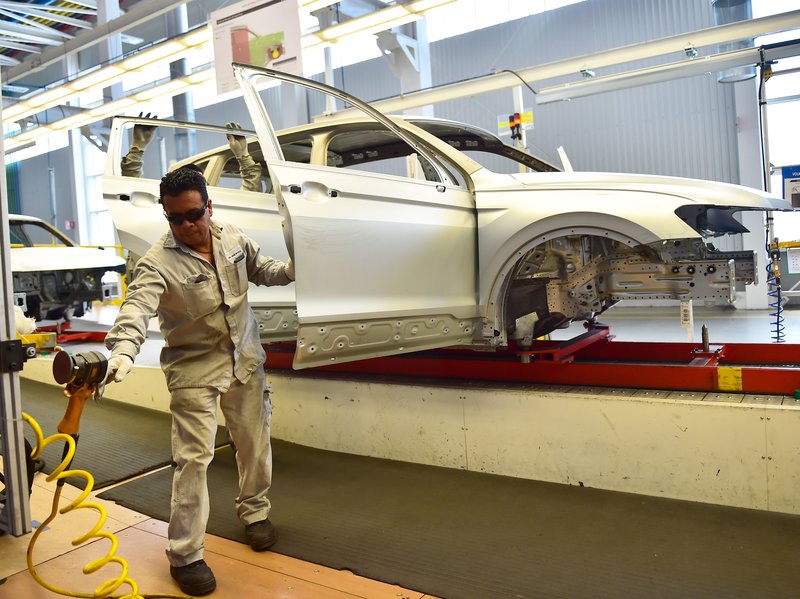NAFTA is no more. The North American Free Trade Agreement has a new name — the United States-Mexico-Canada Agreement, or USMCA — and its rules have been updated and revamped.
For Mexico, there’s one rule in particular that gives workers hope higher wages are coming.
It says that 40 percent of a car must be made in a plant where workers make at least $16 an hour in order to avoid U.S. import tariffs. That would mean a fivefold boost to the average Mexican autoworker’s wage of $3.14 an hour .
But while that looks good on paper, some experts are skeptical that it will happen anytime soon.
Mexican economist Luis de la Calle says carmakers in North America already largely conform to the 40 percent rule. The companies that don’t can opt to pay a 2.5 percent tariff to export the car into the U.S.
“My bet is that, in the short term, some will just choose to pay the 2.5 percent. For the others we will have to see what happens,” de la Calle says. What’s more, the new agreement has a transition period before the $16 an hour rule would go into effect, and the mechanism for monitoring wages hasn’t even been fully worked out either.
Besides, he adds, the auto industry is changing and […]
Read the full story: Will NAFTA 2.0 Really Boost Mexican Wages?
NAFTA is no more. The North American Free Trade Agreement has a new name — the United States-Mexico-Canada Agreement, or USMCA . . .












